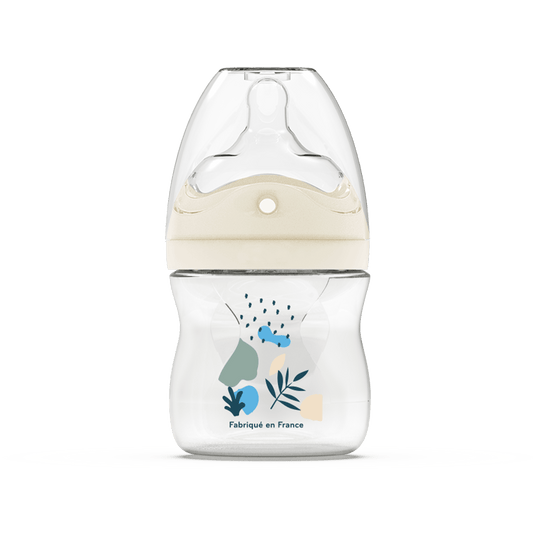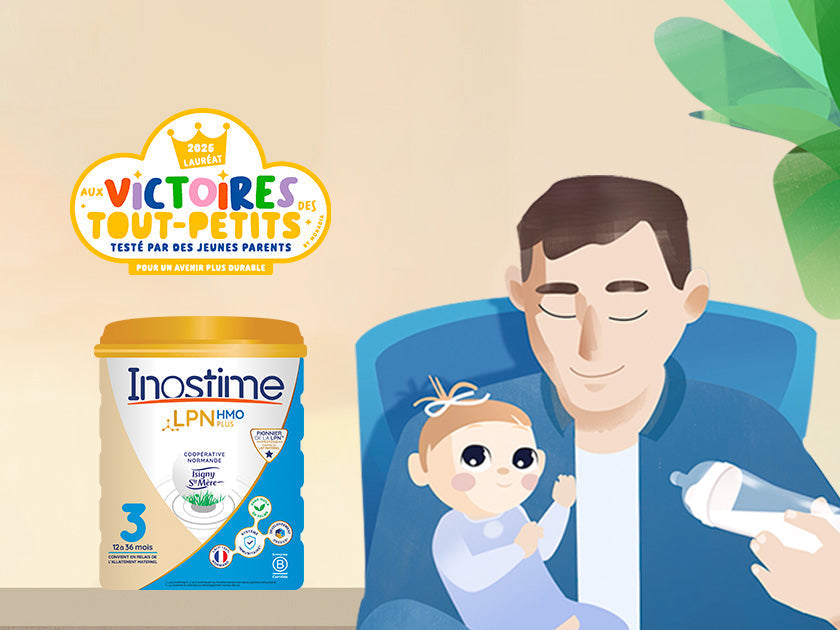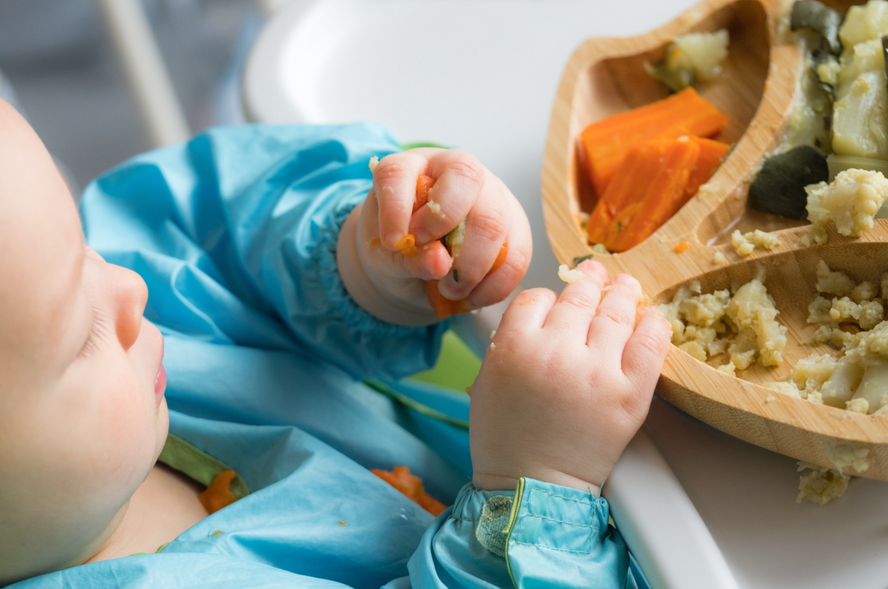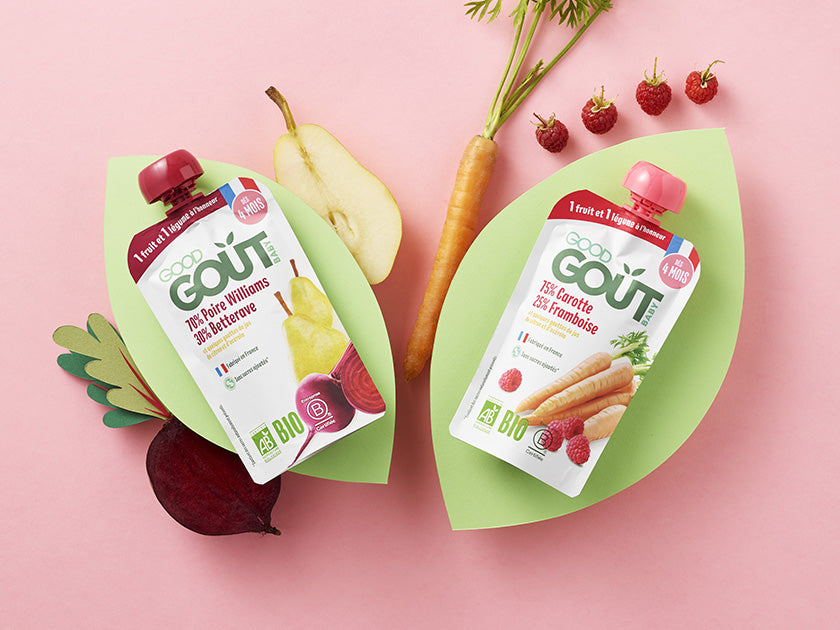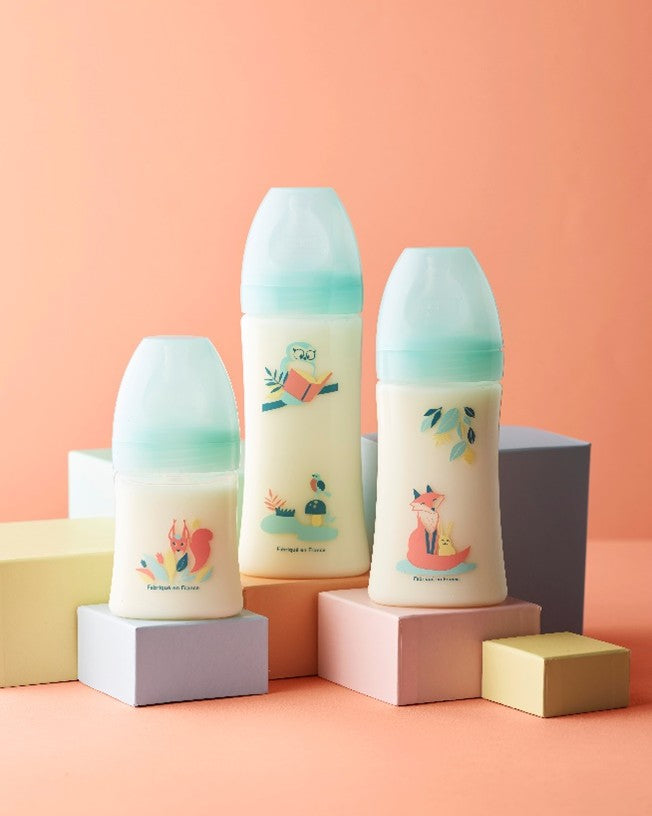Your baby is crying, restless, and refusing to sleep. You're helpless in the face of his behavior and want to provide quick relief. By observing him, you understand the reasons for his discomfort: these are the symptoms of teething in babies. Not all babies are equal when it comes to pain: whether they have a fever or not, they react differently. From natural solutions to medication, here is Biostime's advice to relieve this painful teething.
Natural solutions to ease the symptoms of baby teething
Few medications are approved for babies, yet they truly suffer when their baby teeth try to break through. Massages and cold play an essential role. Here are some solutions you can use without moderation to relieve your child. You'll see: sometimes a few measures are enough to soothe your little one.
1- Gentle gestures filled with love
The first solution to try to reduce your child's discomfort is within everyone's reach. The emergence of baby teeth can be stressful for little ones: they don't understand pain. Comfort them, hold them, and rock them. Don't overreact, and breathe so as not to let your anxiety show. By cuddling your little one, you're already giving them a lot of comfort.
2- Prevent irritation caused by saliva
Mouth irritation is one of the collateral damages of teething. The skin, when in contact with saliva, feels tight and stinging, and sometimes dermatitis develops (inflammation of the surface layers of the skin). The pain of teething is enough: prevent skin conditions with a few simple steps.
- Wipe your little one's face regularly.
- Put some lip balm around his mouth.
- Ask for a perioral cream suitable for your child's age at the pharmacy on the advice of a healthcare professional.
These first steps avoid adding skin pain to that of teething.
3- Massages: a shared moment to soothe your baby
Rubbing your fingers over your child's gums soothes them. Have you noticed? Rub them gently:
- With a very clean finger;
- With a damp and washed cloth.
Relief is immediate: the pressure applied, combined with gentle massages, reduces pain by stimulating blood circulation.
Good to know. Grandma's recipes aren't always the best. Some recommend massaging your gums with honey, others with a sugar cube. We don't recommend these tips, as they could promote cavities.
4- The teething ring: an essential accessory
Your baby is fussy, fussing, putting their fists in their mouth, and their cheeks are turning red: the symptoms of teething are unmistakable. Help them fight the pain by giving them a cute teething ring. You can choose between:
- The classic teething ring, made of rubber or silicone. It follows your baby everywhere: you'll find a model to suit them among a wide variety of colors and sizes.
- The refrigerated teething ring: It contains water or a blue gel. It's very effective because not only does the cold temporarily numb the pain, but it's also anti-inflammatory. A must-have in your cupboards!
Good to know. A strict regulatory framework governs the sale of this type of ring: for safe use for your child. At home, wash this accessory regularly with soapy water.
5- Medication for pain and fever during teething
Your child is clearly suffering from teething: you've noted all the symptoms. You've tried every natural method to help, but he continues to cry, fuss, and be fussy.
6- Temperature: an indicator to take into account
Fever, in case of teething, must be monitored:
- Take his temperature: If his fever exceeds 38.5°C, if his behavior seems abnormal, don't hesitate to consult a doctor. His teeth may not be the only reason for his discomfort.
- Even if the symptoms don't worry you, consult your doctor about the best way to relieve them. For toddlers, it's often recommended to use only one remedy to soothe pain and reduce fever: paracetamol.
7- Anesthetic gel: a dangerous drug
According to health insurance, anesthetic gels pose a real danger to toddlers. They should be avoided because they reduce the swallowing reflex, which allows them to swallow.
It's possible to relieve your child's teething pain: this natural process begins very early, as early as 4 months for those in a hurry. The last permanent teeth, except for wisdom teeth, appear around the child's sixth birthday. A long road ahead!
SOURCES:
Baby teething: what to do? | ameli.fr | Insured
HEALTH. How to soothe your baby's teething? (dna.fr)





